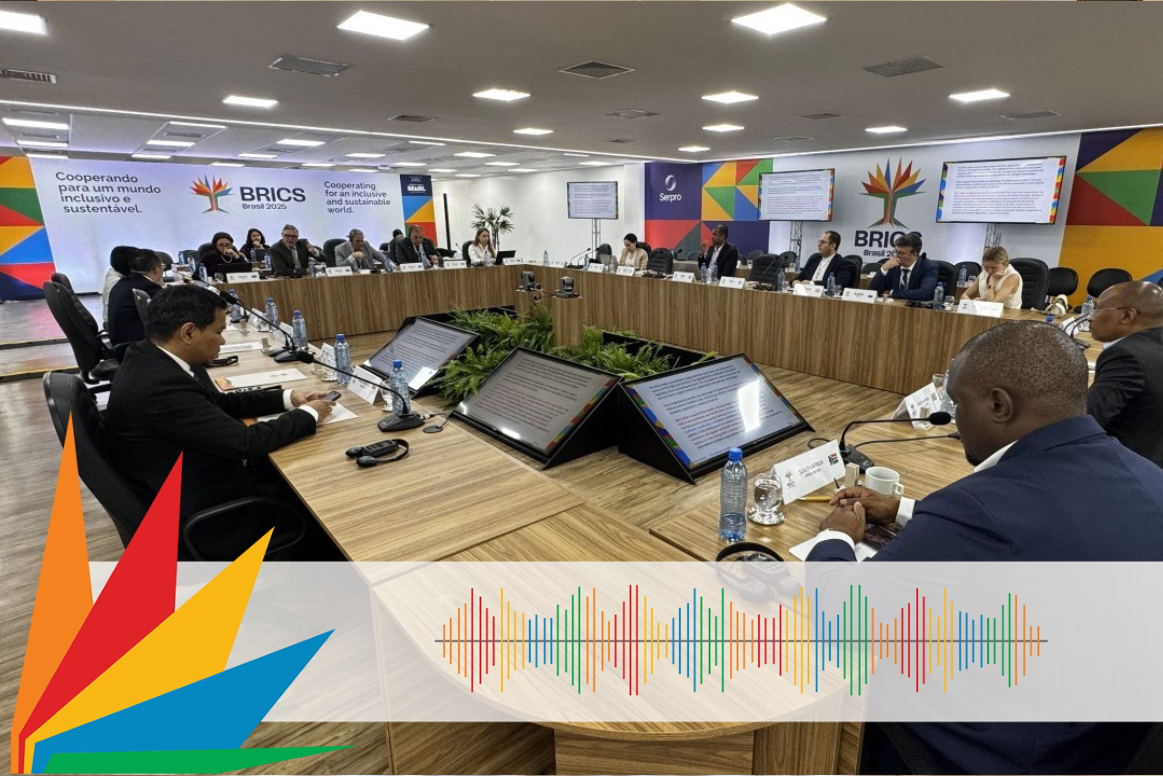BRICS Brasil Bulletin #19 - BRICS united by global standards: harmonizing trade and environmental rules is key theme at meeting in Brasilia
Discover how technical standards in BRICS countries, under Brasil's leadership, are shaping global trade, the fight against climate change, and even the price of products in your daily life. Listen to the full report for more.

Report: Inez Mustafa | BRICS Brasil
Voice-over: Rebeca Rodrigues
Reporter: Remember ABNT (Brazilian National Standards Organization)—the institution that likely only crossed your mind during your final university paper? Well, it’s also behind global decisions that influence everything from the price of the products you buy to how the world responds to climate change. Under the guidance of this organization, BRICS countries are sharing public policies ranging from standardized carbon accounting to combating violence against women within organizations.
And here’s something notable: Mario Esper, President of ABNT, highlighted that in a crisis-ridden world, technical standards are key to facilitating trade and protecting consumers.
Mario Esper: Standardization plays an increasingly strategic role, serving as a tool for commercial integration, innovation, and consumer protection, in line with the United Nations Sustainable Development Goals.
Reporter: But what happens if each country creates its own rules? Maria Cristina Rayol, Head of the Market Access Division at the Ministry of Foreign Affairs (Itamaraty), provides an answer:
Maria Rayol: If we fail to converge on standards, our products won’t gain access to each other’s markets. While challenges may differ, some basic principles hold true, and the most fundamental is that countries need one another to develop. We won’t reach our full potential unless we work together.
Reporter: Other BRICS nations share this concern, as emphasized by Iran’s delegate, Mehdi Ghasemi:
Mehdi Ghasemi: Streamlining procedures and promoting mutual recognition within the BRICS framework will significantly reduce trade barriers and enhance economic integration.”
Reporter: One of the most pressing topics was carbon accounting. Brasil, which boasts one of the cleanest energy mixes in the world, is advocating for changes in how emissions are calculated. As it stands, current methodologies fail to account for the fact that Brasil’s forests absorb more CO₂ than the country emits.
Cristina Rayol: Brasil has an exceptionally clean energy mix, vast forest reserves, and a diversified profile. Brasil is not a carbon-emitting country. In the overall balance, Brasil removes carbon from the atmosphere. I believe the Brazilian government’s major effort—working in cooperation with the private sector—is to ensure that carbon accounting reflects the full scope of the production process so that the advantages of countries like Brasil become evident.
Reporter: And make no mistake, this affects your wallet as well! If standards remain unequal, products become more expensive, and supply chains can stall. Rostislav Sirotkin, the Russian delegate, underscored how BRICS cooperation is building a fairer system.
Rostislav Sirotkin: Mutual recognition of carbon accounting standards plays a crucial role in facilitating trade, ensuring safety, and promoting innovation.
Reporter: In the end, what may seem like mere “technical bureaucracy” is actually shaping a more sustainable future—one grounded in a strong economy and guaranteed rights. As for Brasil? It’s paving the way during its BRICS presidency. Stay tuned—these standards will determine much more than the formatting of your academic papers!
English version by: Tadeu Azevedo (POET/UFC)
Proofreading by: Luana Ferreira de Freitas (POET/UFC)